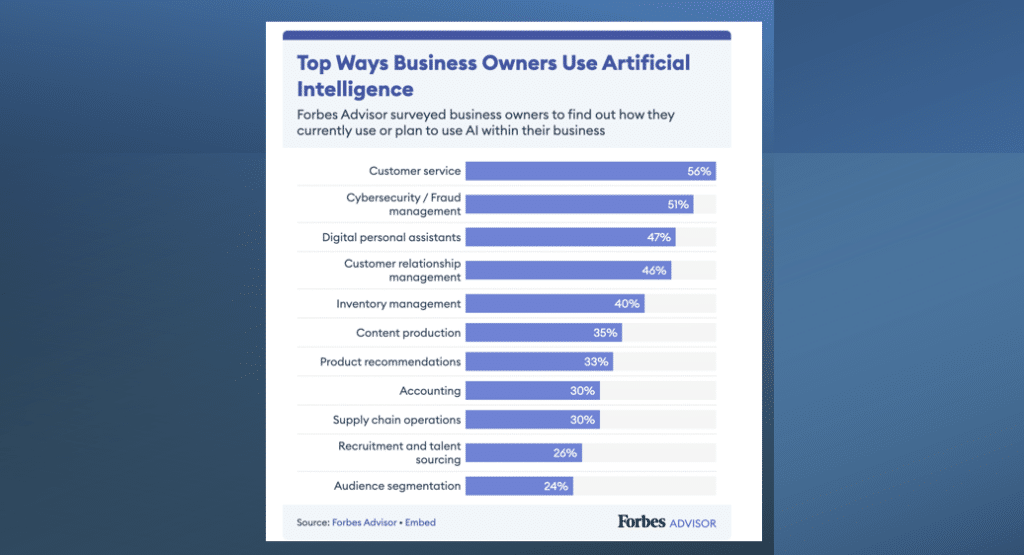Artificial intelligence can lessen the time it takes to work on reports or performance reviews from days to hours or even minutes, but HR can’t live on it alone.
Trish Steed, CEO and principal analyst at H3 HR Advisors, said the human element is precisely what makes it necessary for companies to use AI as a tool and not as an HR replacement.
“It’s really the thing that artificial intelligence cannot provide that will help us keep our jobs,” Steed told the audience during her session Wednesday at the HR Tech Conference titled AI and CHRO: Balancing the Power of Technology with the Human Touch.
See also: We’re in an AI revolution. What’s HR’s role?

According to a recent survey by Forbes Advisor, Steed said, business owners use or plan to use AI mostly as digital personal assistants or in such areas as customer service and cybersecurity/fraud management. However, she predicted that HR would benefit more and more from AI in the very near future.
“We can be really creative (with AI),” she said. “We use them for customer service, but we need to make sure we’re translating them into our organization.”
Examples of potential use in the near future that Steed pointed out included data-gathering: In the hands of humans, a major effort could take six months, she said, but AI can sort and sift through that data much more quickly.
“For example, here at the conference, you might be asked for a headcount report that may take six hours or more,” she said. “Now, you can go to the expo floor and see a product that can do that in five minutes.”
At the same time, again, employers should look at how they can best retain the human element. For example, Steed said, an AI chatbot could give you the answers you need about your PTO or offer tips for finding the information yourself.
Ultimately, she offered the audience two takeaways for considering AI in their organizations: have open discussions around rules and guardrails and ask vendors lots of questions about their AI products.
Open discussions around ChatGPT are critical
There are examples of HR employees merely turning their tasks over to ChatGPT without considering the answers.

“How many of you have gone onto ChatGPT and gotten completely wrong information?” Steed asked at one point. Several audience members raised their hands.
Steed suggested open dialogue within companies around AI—setting up forums and documents, as well as establishing rules around it.
Dialogue also helps resolve issues with ethical concerns. Steed said it doesn’t take too much work to find stories about how users are posting confidential information, often unwittingly, and how that information ends up in ChatGPT answers online.
But, she added, “I don’t want people to be afraid of (AI). I think the benefits far outweigh the risks.”
Discussions with vendors are also key
Posing questions to vendors about their AI-driven products should also be on HR leaders’ agenda, she said. “You should ask them questions, and if you don’t get the answers you’re looking for, ask their competitors questions too,” she advised.
Steed has a two-page list of questions in her recent publication, Vendor Selection Checklist: AI.
Steed and co-author Steve Boese—who is also the chair of the HR Tech Conference—focus on several areas in their list of questions, including how well the AI integrates with existing products companies already use, how the AI handles potential biases and how well the AI product adapts to feedback.

